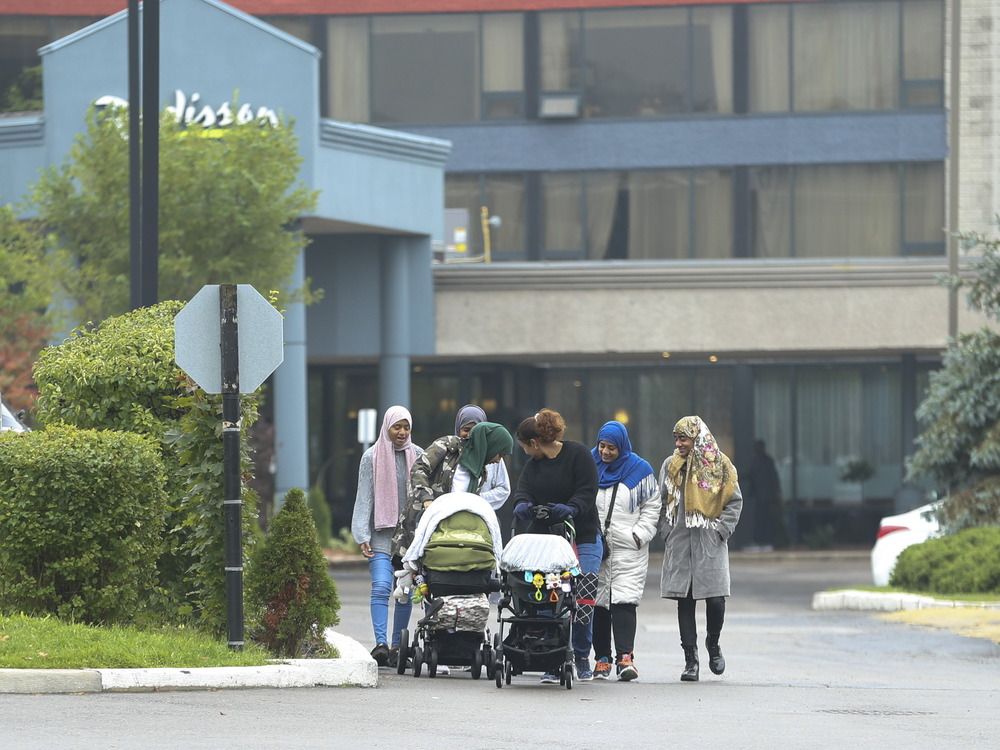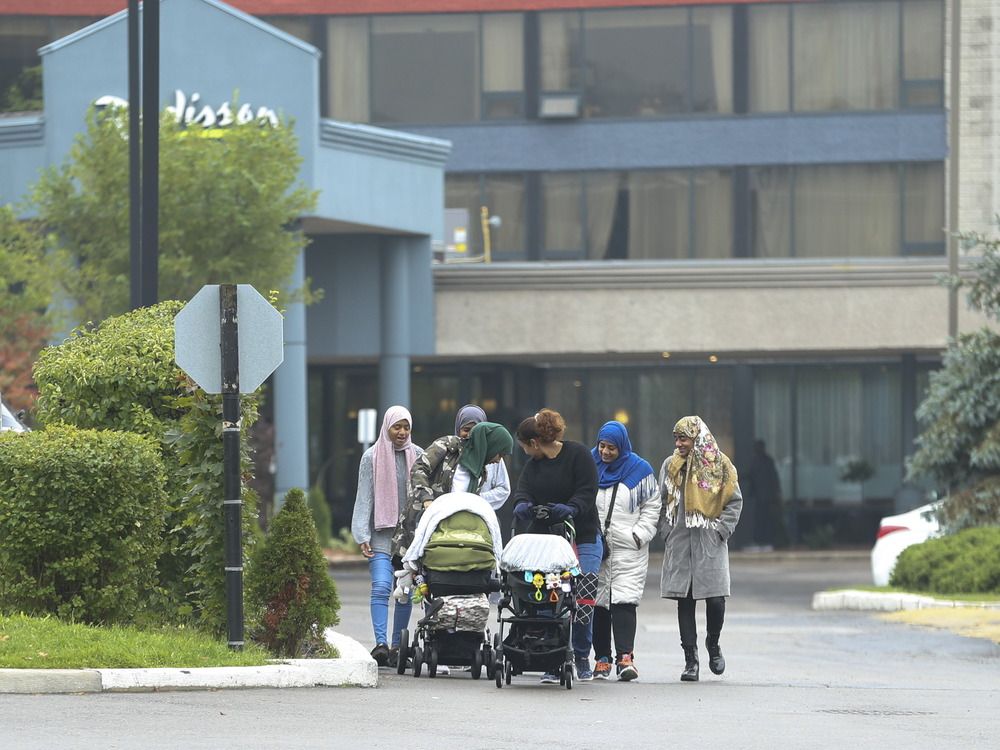
The federal government is on the verge of phasing out a program that sees asylum seekers stay in hotels on Ottawa’s dime. Immigration, Refugees and Citizenship Canada (IRCC) has said that funding will end in September.
According to IRCC, the government is currently housing close to 500 asylum seekers in five hotels in Ontario and Quebec, far fewer than the 2023 peak at hotels across Canada. It has spent
on temporary hotel housing since 2020.
“IRCC-funded hotels were always a temporary measure to support local shelter systems as the use of hotels is not a sustainable, cost-effective solution,” a spokesperson from the department told National Post in an email.
“IRCC will continue supporting provinces and municipalities in developing their own long-term housing strategies. This shift will reduce costs to Canadians and improve outcomes for claimants.
The hotel plan began in 2018 with a
to help provinces and municipalities deal with housing for asylum seekers. That included $11 million for the City of Toronto.
“We have a clear plan for managing asylum seeker pressures and continue to act to support our partners,” Ahmed Hussen, Minister of Immigration, Refugees and Citizenship, said at the time. “Our largest cities have shown tremendous leadership in their response to the recent influx of asylum seekers. Toronto and Montreal, as major population centres, face the greatest challenges when it comes to housing asylum claimants, and we will continue to work with them to come up with long-term, workable solutions to those challenges.”
Costs have skyrocketed since then. Government figures show that, in 2018-19, funding for the Interim Housing Assistance Program, or IHAP, amounted to $29 million for Ontario and Manitoba. The following year the program expanded to include Quebec and British Columbia, and the price tag was $342 million. Costs fell a little in future years, but in 2024-25, payments pending total $300 million.
Asylum claims have also increased over the span of the program. In 2019, government figures show there were 64,000 asylum claims in Canada. That fell during the early years of the pandemic but rose to 92,000 in 2022, 144,000 the following year, and 173,000 last year.
The government notes that, at its peak in late 2023, the federal hotel footprint included 46 sites from Vancouver to St. John’s at an average cost of $205 per night. While stays were inherently temporary, it notes, there was no enforcement on length of stay.
IRCC says its new plan involves reception centres that will provide immediate short-term housing and other services to asylum seekers; relocation to other jurisdictions, including other provinces with more affordable housing and jobs; and a plan for housing independence, in which claimants transition into receiving communities and jobs.
“Through early investments in IHAP, the federal government has already supported the opening of a reception centre in Peel and transitional housing options in Ottawa,” the spokesperson told National Post. “Future IHAP investments will add more housing capacity for asylum claimants.”
IHAP is no longer accepting new applicants for its hotel program, and has been winding it down in anticipation of the September end date, the spokesperson said.
“Since January 2024, IRCC has helped over 15,000 claimants transition to independent living, and it will continue to assist those currently on site with securing longer-term housing until September 30, 2025.”
The spokesperson added: “As of July 2025, IRCC has rooms leased in one hotel in Quebec and four hotels in Ontario, with a total of 485 asylum claimants. IRCC remains committed to supporting claimants during this transition, working with service providers to assist with housing, employment, and essential services.”
Experts and advocates say that could be difficult in cities where demand is high.
“What they need to do is actually put something in place to make sure refugees don’t fall on their face,” said Nadine Miller, executive director of Pilgrim Feast Tabernacles Church, which took in dozens of refugees in Toronto two years ago as shelters overflowed. “We’ve been picking up the pieces since 2023.”
Her suggestion: “Get their paperwork processed faster. That’s the biggest problem they’re having. If you sit in a hotel for two, three, four months or even a year, and you don’t have a work permit, what that does for you is you’re no further than the day you came in.”
— with files from Canadian Press
Our website is the place for the latest breaking news, exclusive scoops, longreads and provocative commentary. Please bookmark nationalpost.com and sign up for our daily newsletter, Posted, here.
